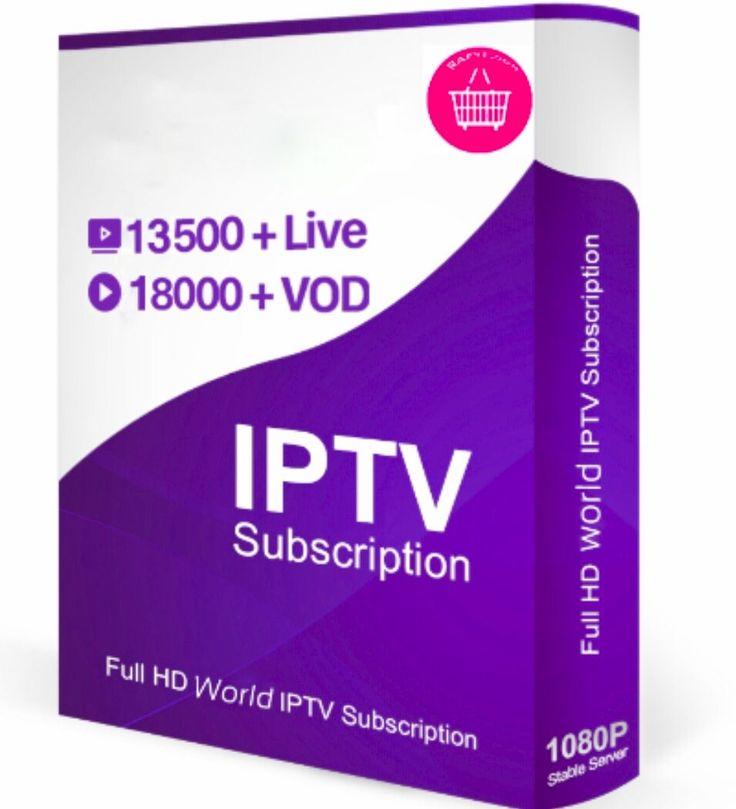Introduction to IPTV
IPTV, short for Internet Protocol Television, refers to the delivery of television content over the internet rather than through traditional satellite or cable networks. Unlike conventional methods of broadcasting, where content is delivered through signals received by antennas or satellite dishes, TV relies on internet protocols to transmit multimedia content to viewers’ devices.
The concept of IPTV traces back to the early 1990s, with the development of internet-based technologies for transmitting video and audio data. Over the years, advancements in broadband internet infrastructure and video compression techniques have facilitated the widespread adoption of IPTV services.

How IPTV Works
IPTV Delivery Methods
IPTV services can be delivered through various methods, including:
- Live Television: Broadcasting live TV channels over the internet in real-time.
- Video on Demand (VOD): Offering users the ability to select and watch video content at their convenience.
- Time-Shifted Media: Allowing viewers to rewind, pause, or fast-forward live TV programs.
Components of an IPTV System
An IPTV system comprises several key components, including:
- Content Delivery Network (CDN): Infrastructure for storing and delivering multimedia content.
- IPTV Middleware: Software that manages the delivery of content and user interaction.
- Set-Top Box (STB): Device used to decode and display ITV streams on television sets.
- Subscriber Management System: Platform for managing user accounts, subscriptions, and billing.
Benefits of IPTV
IPTV offers numerous advantages over traditional television services, including:
- Access to a Wide Range of Content: IPTV provides access to an extensive library of TV channels, movies, series, and other multimedia content from around the world.
- Customization and Flexibility: Viewers can personalize their viewing experience by selecting specific channels, creating custom playlists, and setting preferences.
- Improved Picture and Sound Quality: With IPTV, content is delivered in high-definition (HD) or even ultra-high-definition (UHD), providing viewers with superior picture and sound quality compared to traditional TV broadcasts.
IPTV vs. Traditional TV
Cost-Effectiveness
IPTV is often more cost-effective than traditional TV services, as it eliminates the need for expensive hardware installations and long-term contracts. Users can subscribe to IPTV services on a monthly basis, with the option to cancel or modify their subscriptions at any time.
Content Variety
Unlike traditional TV, which offers a limited selection of channels based on geographic location, IPTV provides access to a diverse range of content from different countries and genres. Users can choose from thousands of channels and on-demand titles, ensuring that there is something for everyone to enjoy.
Interactive Features
IPTV platforms often include interactive features such as program guides, electronic program menus (EPG), and interactive applications. These features enhance the viewing experience by allowing users to search for content, schedule recordings, and engage with multimedia content in innovative ways.
Popular IPTV Services
Several popular IPTV services have gained widespread popularity among consumers, including:
- Netflix: A leading subscription-based streaming service offering a vast library of movies, TV shows, and original content.
- Hulu: A streaming platform that offers a combination of live TV channels, on-demand content, and exclusive programming.
- Amazon Prime Video: Amazon’s streaming service featuring a diverse selection of movies, series, and original productions.
- Disney+: Disney’s dedicated streaming service, home to a vast collection of Disney, Pixar, Marvel, Star Wars, and National Geographic content.
Challenges and Concerns
Despite its many benefits, TV also faces several challenges and concerns, including:
- Bandwidth Requirements: Streaming high-definition content requires significant bandwidth, which may pose challenges for users with limited internet connectivity.
- Content Licensing Issues: Securing licensing rights for distributing TV channels and movies can be complex and costly, leading to content restrictions and regional limitations.
- Piracy Concerns: IPTV services are susceptible to piracy and illegal streaming, raising concerns about copyright infringement and revenue loss for content creators and distributors.
Future of IPTV
The future of IPTV looks promising, with ongoing technological advancements and evolving consumer preferences shaping the industry’s trajectory. Key trends and developments include:
- Technological Advancements: Continued advancements in video compression, streaming protocols, and network infrastructure are expected to enhance the quality and reliability of IPTV services.
- Integration with Other Services: ITV is increasingly being integrated with other digital services, such as smart home devices, gaming consoles, and social media platforms, creating new opportunities for content distribution and monetization.
- Regulatory Challenges: Regulatory frameworks governing IPTV services are evolving to address issues such as content licensing, piracy, and net neutrality, shaping the future landscape of the industry.
Conclusion
IPTV has emerged as a game-changer in the world of television, offering viewers unprecedented access to a vast array of content and personalized viewing experiences. While facing challenges such as bandwidth limitations and content licensing issues, TV continues to evolve, driven by technological innovation and changing consumer preferences. As the industry continues to mature, IPTV is poised to remain a dominant force in the entertainment landscape, shaping the future of how we watch television.
FAQs (Frequently Asked Questions)
- What is IPTV? IPTV stands for Internet Protocol Television, which refers to the delivery of television content over the internet rather than through traditional broadcast or cable networks.
- How does IPTV work? IPTV works by transmitting multimedia content, such as live TV channels and video on demand, over internet protocols to viewers’ devices, such as smart TVs, computers, and mobile phones.
- **What are the benefits

